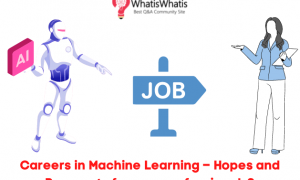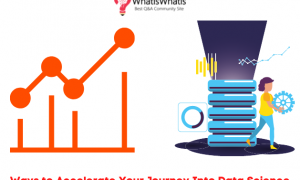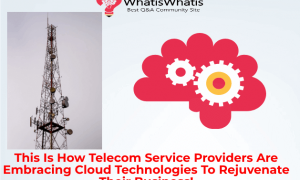Cloud computing is becoming more popular than ever as businesses embrace data-driven business models, remote and flexible work environments, and global supply networks.
New capabilities and deployment patterns continue to emerge, giving organizations of all sizes and industries more options for consuming, using, and benefiting from their cloud investments.
This is especially appealing to small and fast-growing firms, which can now acquire modern technology that was previously unavailable. If you want to be successful in accounting, you need to be knowledgeable about current accounting technologies and keep up with emerging trends.
So, what’s new in accounting technology on the horizon?
We’ve put together a list of accounting trends for the year 2023.
10 Cloud Computing Trends That Will Impact the accounting industry in 2023
Here is the list of 10 cloud computing trends that will impact the accounting industry in 2023:
Trend 1: New Sets of Skill
- Accounting professionals will expect to demonstrate new skill sets as the usage of technology in accounting continues to grow.
- To gather the data you need, you’ll first need to learn how to handle AIs and tell them how to do difficult duties like forecasting finances.
- You’ll also need to know how to analyze the data presented by the AI.
- As a result, one of the most searched new skill sets among accountants today is technical knowledge.
Trend 2: Cloud Computing Standard
- The introduction of cloud computing and, with it, improved tools that accountants can use to perform their work has been one of the most significant advancements in accounting and technology.
- Every year, new technologies emerge to make your job easier, and existing platforms are update and overhauled to keep them competitive.
- You will spend less time dealing with people and more time instructing your AI on how to present data and predict trends.
- Even for the most unskilled accountant, today’s technologies are extremely easy and capable of expediting the accounting process.
- They’re also cloud-based, making them more secure and accessible from any device with an internet connection.
Trend 3: Social Media
- Clients are searching for a business that can not just do the task properly. But also one they can trust since AI improves accuracy and reduces errors.
- As a result, social media is one of the most popular new technological trends. It’s the most important tool businesses will employ to teach users about themselves. And demonstrate that they’re reliable and productive partners.
- Social media will be stress as a crucial sales. And marketing tool to communicate with existing clients and attract new ones.
Trend 4: The Internet of Things (IoT)
- The Internet of Things (IoT) refers to a network or system that has a large number of interconnected devices.
- In a business setting, this typically entails using a range of mobile devices, as well as automated scanners, RFID chips, and other internet-connected sensors and devices to bring their digital infrastructure to life.
- For accountants, this usually entails gaining real-time data. And allowing the data to be collected automatically without the need for constant human intervention.
Trend 5: Automation
- Although AI is occasionally use for automation, automation technology is a separate category.
- Automation is the process of allowing a machine or algorithm to do jobs that humans used to complete manually.
- It is important to distinguish between human inaccuracy and machine precision.
- It also improves reliability because an algorithm is significantly less likely than a human to make a mistake.
- Automation is employ as an enhancing tool rather than a substitute in the accounting industry.
Trend 6: Huge Data
- Data has become so vital to modern business that it has virtually taken on the role of currency.
- Businesses and organizations are seeking to integrate more big-data technologies into their operations to collect data, evaluate it, and make better strategic decisions.
- Data can be utilize for a variety of objectives in the accounting sector, including evaluating transactions, detecting unexpecting events, and providing a better understanding of consumers, workers, and vendors.
Trend 7: Artificial Intelligence (AI)
- Artificial intelligence (AI) is also picking up steam as a tool for enhancing the accounting business.
- Accounting departments can evaluate data in greater depth—and faster—thanks to improved AI.
- Personal digital assistants, for example, may use AI to help accountants be more productive by directing them, providing insights, and completing some tasks independently.
Trend 8: Remote Working
- Accounting, like many other businesses, is becoming more remote as a result of the COVID-19 epidemic.
- Developed and built is also becoming more popular as a result of cloud computing and storage technologies (working from many different locations, including a home office, business office, and coffee shop).
- Employers can expand their hiring efforts to include non-local candidates, and employees can take a more flexible approach to work and make work fit in with their lifestyle rather than their lifestyle fitting in with their work.
- Due to new technology that allows accounting professionals to effectively and securely perform their jobs from a remote location.
Trend 9: Real-Time Analytics
- It’s no longer enough to do a retrospective analysis on the data. And you’ve obtained in the past in today’s corporate world.
- If you want to stay competitive and reach peak productivity. You need to look at the content you’re collecting right now. And make decisions based on the most up-to-date data.
- This is where real-time analytics may help.
- Accountants may look at how a company’s finances change in real-time. And make informed judgments based on variances in ongoing patterns using the correct digital tools and dashboards.
Trend 10: Blockchain Technology
- The blockchain has been one of the most popular technologies in the last decade.
- It’s a term you’ve probably heard of about Bitcoin and other digital currencies.
- The blockchain serves as the backbone of so-called cryptocurrencies, as it is the system that allows for permitted transactions.
- In essence, the blockchain is base on a distributing ledger that is shared among many nodes in a larger network. And anytime a transaction is attempt, all nodes in the blockchain collaborate to validate the transaction.
- Transactions can be documents in a secure and publicly available shared register, which transforms record keeping.
To Sum Up!
In each of these areas, new platforms, new developments, and new approaches emerge every year. Accounting technology trends and in-demand skill sets are vital to staying competitive in this rapidly changing industry.
Keep an open mind when it comes to understanding new technology, and keep in mind that these advancements will make your job easier and more impactful. Sagenext is constantly updating its resources to match the latest developing trends, so when you’re ready to refresh your abilities to reflect current trends.






Leave a comment